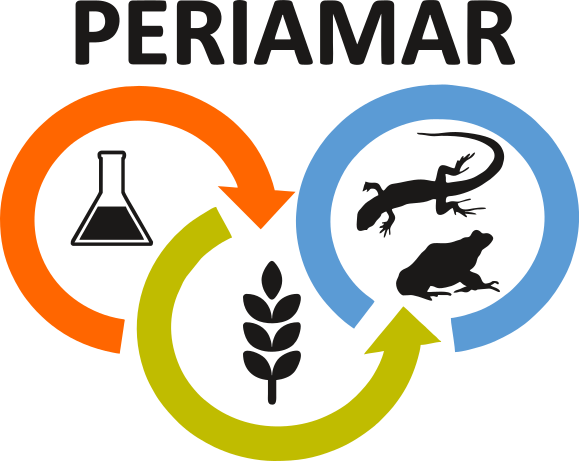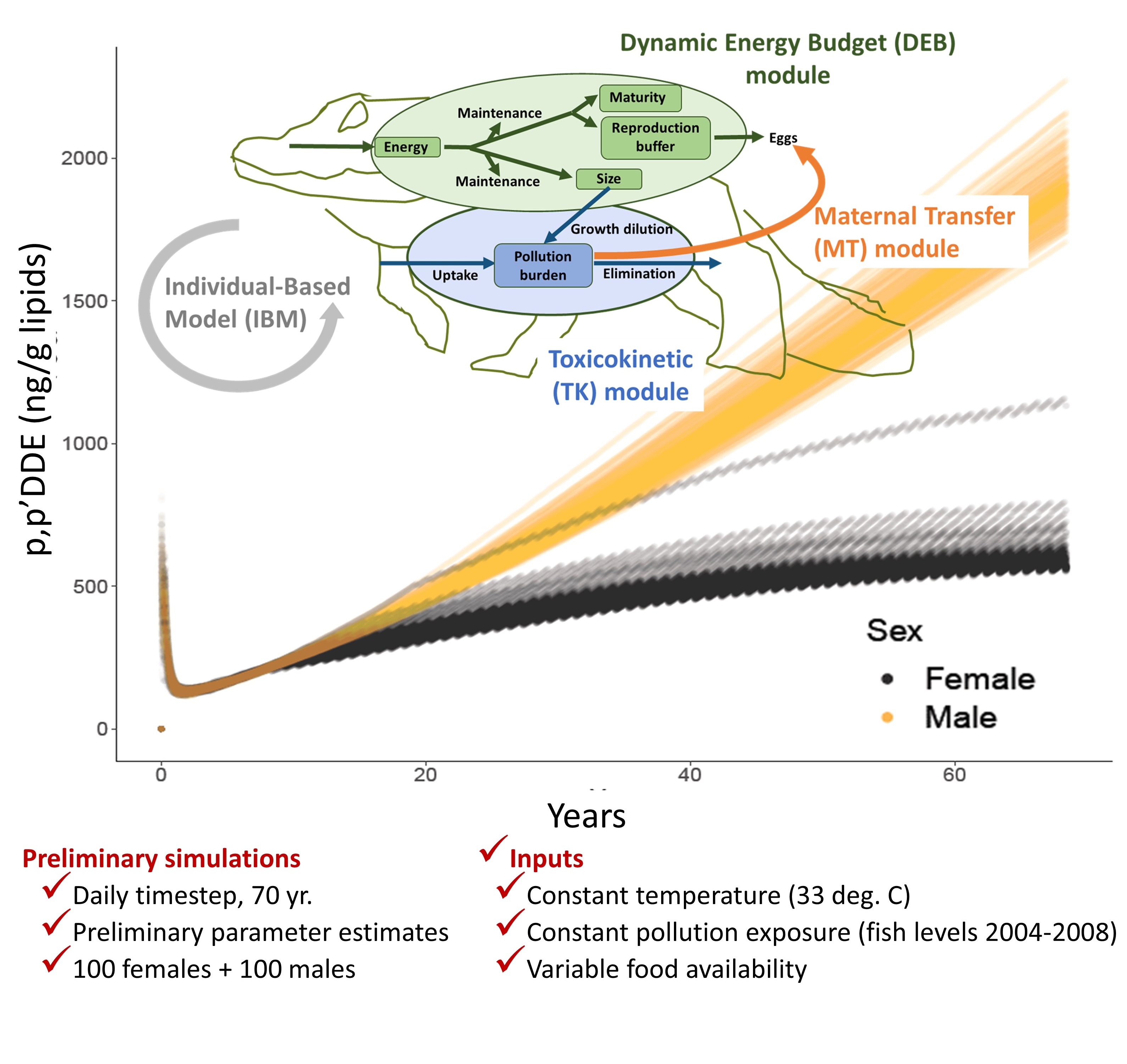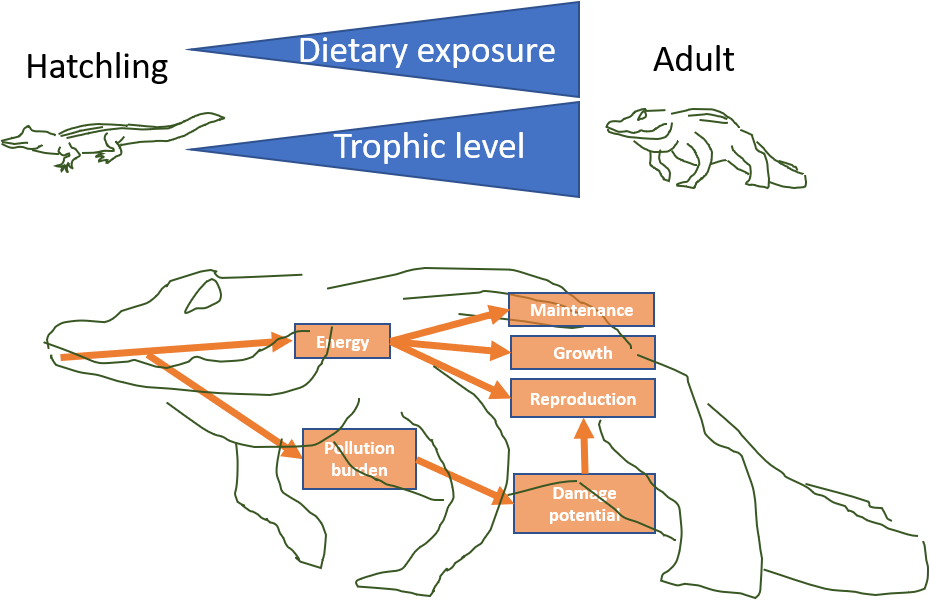Lifecycle energetics of reptiles under pollution stress
| Project duration | January 04, 2021 to September 04, 2022 |
|---|---|
| Funding Body | -- |
Description
The project aims to better understand: A) how long-lived reptiles, such as crocodile species, manage their energy needs for growth and reproduction throughout their lifecycle, and, B) how sublethal effects of pollutants emerge via the accumulation of pollutants throughout their lifecycle. Therefore, the project will develop and test a process-based model of the lifecycle development and pollution accumulation within long-lived reptiles. A dynamic energy budget model (DEB) will form the core of this model. The effects of pollutants, focussing particularly on organochlorine pesticides, will be integrated into this DEB model by means of toxicokinetic and toxicodynamic modelling, and supported by literature meta-analyses to derive parameter values for this relatively understudied group of species. Currently, the model is being developped and applied in a case study on American alligators (alligator mississippiensis). The resulting model aims to support conservation management by improving knowledge on the physiological processes that underlie the lifecycle of reptiles, and how these processes depend on variations in food, temperature and pollution levels.PERIAMAR members
Additional information
| Chemical | POPs, Insecticides |
|---|---|
| Taxa | Reptilia, Crocodilia |
| Study Framework | In silico |


